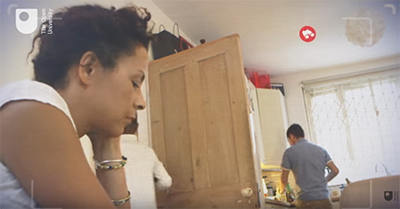 1. Online survey on perspectives and experiences of Internet infidelity (Vossler & Moller)
1. Online survey on perspectives and experiences of Internet infidelity (Vossler & Moller)
This recent study by two psychology academics at The Open University is the first in the UK which asked people with experience of internet infidelity how it impacted them, providing a fascinating insight into how internet infidelity is directly affecting 21st century relationships.
The study was based on an anonymous online survey with 239 adults from 18 to 73 years old. The research used open as well as closed questions, which allowed participants to write in detail about their experiences with Internet infidelity. Unlike most prior research in the area, the study recruited people who had experienced Internet infidelity – either having engaged in it themselves or having found out that their partner had indulged.
The findings showed that many participants think that the internet makes infidelity more likely. Participants felt that the Internet increases the risk of infidelity, both making covert contact with another person easy and having a dis-inhibiting effect, making it easier to engage in behaviour that might be avoided in real life. The study also found that the effects of internet infidelity can be as traumatic and wounding as face-to-face adultery, with many participants detailing their ongoing distress and describing the online infidelity as a relationship-ending event.
Further findings include:
Grey areas among couples over how they define infidelity online: What is experienced as infidelity online can vary from person to person. What might be seen as casual chatting by one partner, is hurtful and disloyal to the other for instance.
Gender differences in perceptions of infidelity, with women seeing more internet activities as infidelity, and perceiving them as more distressing.
Some evidence that online infidelity can be addictive.
Examples of anonymous responses to an open questions illustrating the experiences with Internet infidelity:
- ‘I tried to stop but neither of us could, it would start again and since so easy, with all the technology we carry around it was an amazingly comforting and sexy thing to have. With long working hours an online relationship is like fast food, ready when we are, naughty, cheap, very often eaten alone without the exhaustion of social niceties.’
- ‘I have a deep mistrust in the internet, and feel it massively facilitates infidelity. My ex-husband is inherently a very shy man, but online he is able to act much more confidently and attract the attention of other women. I strongly believe he would not have had so many affairs without the internet.’
It can be concluded from the findings that couples in a committed relationship may, in order to prevent future misunderstandings, now have to think about sharing their attitudes towards social media and keeping it a topic for ongoing discussion - just as a couple might negotiate an agreement on the desire for children or marriage.
There is a podmag which explains a bit more about the project.
2. Review of the research literature on Internet infidelity
This paper provides a critical review of the research literature on Internet infidelity:
Vossler, A. (2016). Internet infidelity ten years on: A critical review of the literature. The Family Journal: Counseling & Therapy for Couples and Families. http://oro.open.ac.uk/45755/
The rapid development of Internet and social networking services in the last decade have augmented the possibilities to engage in activities online that can be classified as infidelity and introduced new challenges into the practice of couple and sex therapists. Building on Hertlein and Piercy’s (2006) literature review, this paper provides a critical review of the literature on Internet infidelity published in the last ten years. The aim with the review is to present the current state of knowledge in this field compared to the situation in 2006. The review includes research articles and theoretical papers on the definition of Internet infidelity, factors contributing to it, the impact of online infidelity on couples and families and treatment models and issues. A discussion of implications for both future research and therapeutic practice is presented at the end of the paper.
About the authors:
The academics behind I Spy are both from the OU’s School of Psychology and practitioners in the field of counselling. It is their aim to improve understanding and awareness for both the public and counsellors at a time when there are growing opportunities to participate in activity online which could lead to infidelity.
- Dr Andreas Vossler: http://www.open.ac.uk/people/av2585
- Dr Naomi Moller: http://www.open.ac.uk/people/nm8578


Rate and Review
Rate this article
Review this article
Log into OpenLearn to leave reviews and join in the conversation.
Article reviews